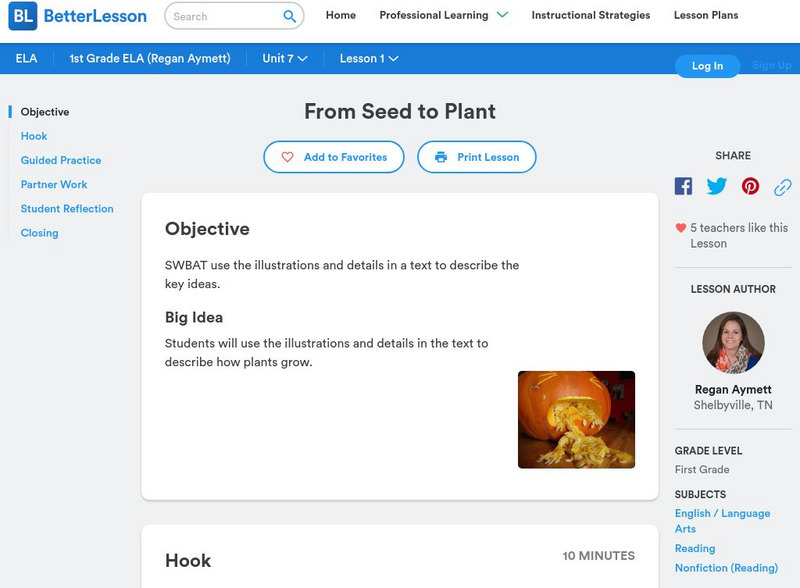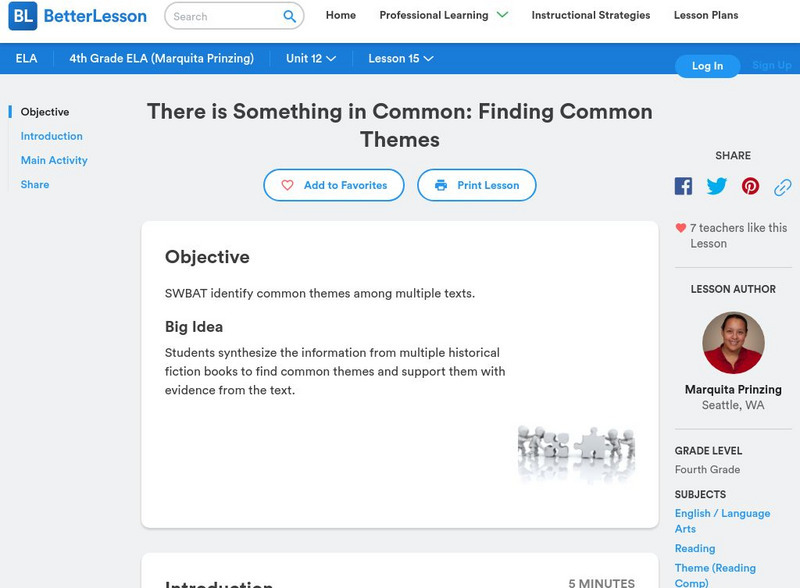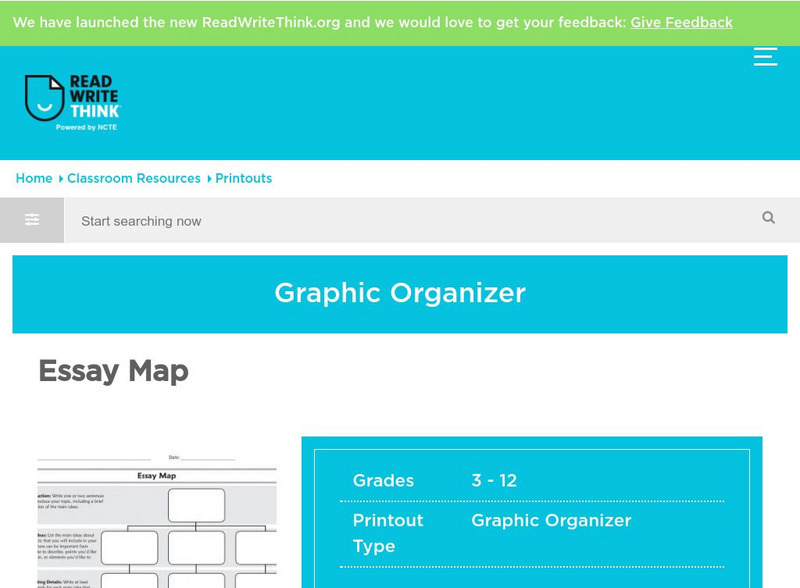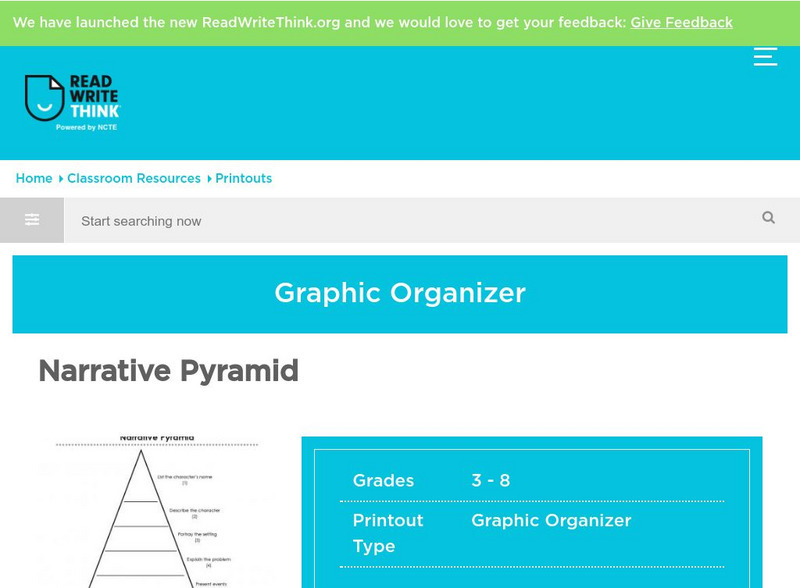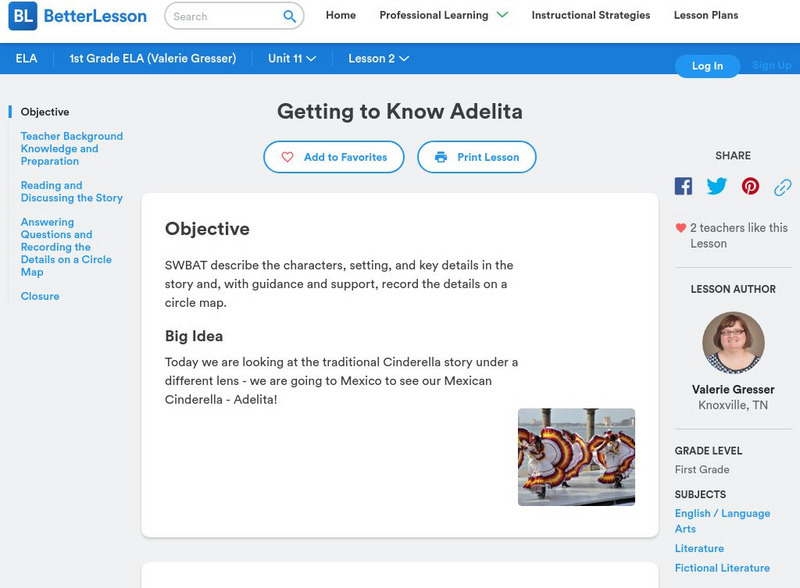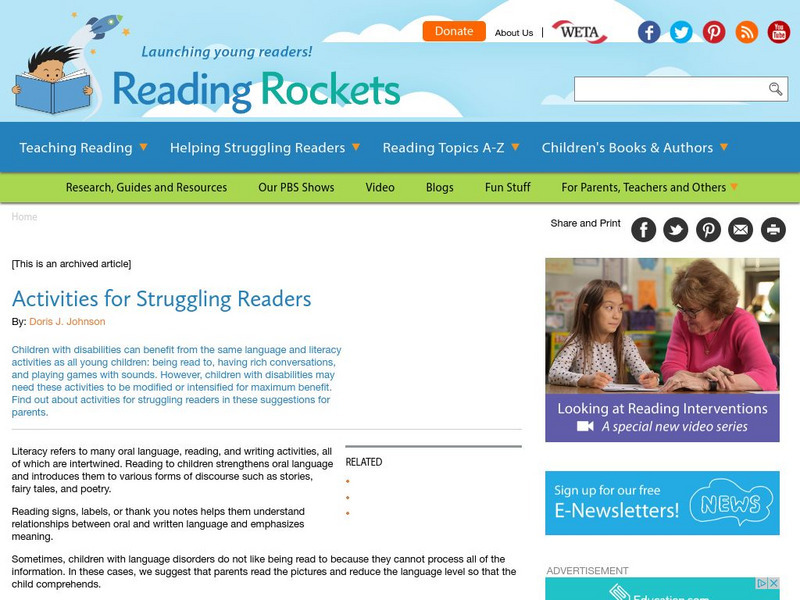Hi, what do you want to do?
Read Works
Read Works: Marathon Kids
[Free Registration/Login Required] An informational text about a program called Marathon Kids that is designed to teach children to be physically active. A question sheet is available to help students build skills in reading comprehension.
PBS
Pbs Learning Media: Reading Informational Text: Grades K 1
This learning resource will show teachers how to model how to teach students to describe connections between pieces of information in a text.
Other
Reading Quest: Strategies for Reading Comprehension: Power Thinking
Looking for an alternative to formal outline instruction? Power Thinking teaches the concept of outlining but on a somewhat simplified level. The site is good for basic note-taking from a text.
TES Global
Tes: Romeo & Juliet Rsc Themes Reference
[Free Registration/Login Required] This is a printable reference guide for teachers listing the major themes and motifs in Romeo and Juliet and providing examples of scenes and quotes where you can find them. W.9-10.9a Analysis
Better Lesson
Better Lesson: From Seed to Plant
Students will use the illustrations and details in the text to describe how plants grow. This lesson plan uses a complex text to allow students to analyze the pictures in From Seed to Plant and From Seed to Pumpkin. Included are videos...
Better Lesson
Better Lesson: There Is Something in Common: Finding Common Themes
Learners will synthesize information from multiple historical fiction books to find common themes and support them with evidence from the text. Working with a partner who has read a different book, they will share their theme from their...
Better Lesson
Better Lesson: Exploring the Power of Allusion
Something seems familiar here: Students learn how allusion invites more into a text. Using "The House On Mango Street" students will learn about allusion by paralleling events from both the Bible and from Greek mythology.
Annenberg Foundation
Annenberg Learner: Skimming, Scanning, and Interpreting
Text accompanied by questions leads students through process of skimming (glancing through text for main idea), scanning (searching text for specific information) and interpretation (grasping and reacting to the deeper message).
Other
Thoughtful Learning: ccss.ela literacy.rl.8.9
Use the following resources to teach students how to analyze a modern work of fiction that draws on themes, patterns of events, or character types from myths, traditional stories, or religious works such as the Bible, including...
Better Lesson
Better Lesson: Sl.4.5: Add Audio Recordings and Visual Displays to Presentations
Links to 31 lessons and activities that build student skills in standard SL.4.5: Add audio recordings and visual displays to presentations when appropriate to enhance to development of main ideas or themes.
Better Lesson
Better Lesson: Frog and Toad Are Friends
In this lesson for early readers, students will describe the major events in the plot, describe the characters, and ask and answer questions about the first chapter in Frog and Toad Are Friends---Spring.
Polk Brothers Foundation Center for Urban Education at DePaul University
De Paul University: Center for Urban Education: I Like Plants [Pdf]
"I Like Plants" is a one page, realistic fiction, reading passage about a person who loves plants and became a botanist; now she teaches her college students about plants and ecology. It is followed by constructed-response questions...
ReadWriteThink
Read Write Think: Essay Map
A fillable essay map in PDF format with boxes for an introduction, main ideas, supporting details, and a conclusion. Directions on how to use this type of graphic organizer as well as lists of teaching ideas and related resources are...
Read Works
Read works.org: The Artist Who Painted Herself
[Free Registration/Login Required] Use this read aloud lesson to teach concepts such as main idea, using pictures to gain information, and recount key details from an informational text. This lesson plan aligns with Common Core standards...
Polk Brothers Foundation Center for Urban Education at DePaul University
De Paul University: Center for Urban Education: I Like Plants [Pdf]
"I Like Plants" is a one page, realistic fiction, reading passage about a person who loves plants and became a botanist; now she teaches her college students about plants and ecology. It is followed by constructed-response questions...
ReadWriteThink
Read Write Think: Narrative Pyramid
A printable narrative pyramid where students can record information about a story including the character, setting, problem, main events, and solution. Directions on how to use this type of graphic organize as well as lists of teaching...
Better Lesson
Better Lesson: The 2 Faces of Pocahontas
Teachers will engage young learners to understand how one story can be shared more than one way. This lesson demonstrates an historical interpretation of the story about Pocahontas and John Smith with the Disney movie. Several resources...
Better Lesson
Better Lesson: Generally Speaking, Generalizations Can Generally Be Confusing
In this lesson, 5th graders learn how to identify a generalization in a text so that they can then spot lies or inaccuracies. Includes downloadable workbook with a generalization activity on page 53.
Better Lesson
Better Lesson: The True Story of Christopher Columbus
In this lesson, 5th graders analyze two nonfiction passages on Christopher Columbus to determine facts and author's bias and its influence on the readers.
BBC
Bbc Skillswise: Reading: Skimming and Scanning
Tutorial on how to skim and scan text and the difference between them. For adult learners.
Better Lesson
Better Lesson: Getting to Know Adelita
In this lesson, 1st graders will describe the characters, setting, and key details in "Adelita: A Mexican Cinderella" by Tomie de Paolaby. With guidance and support, students will record the details on a circle map.
Penguin Publishing
Penguin Random House: A Teacher's Guide to "Death of a Salesman" [Pdf]
Comprehension questions, reflection and research questions, and project ideas are the main focus of this 7 page .pdf guide.
AdLit
Ad lit.org: Classroom Strategies: Power Notes
Power Notes is a strategy that teaches students an efficient form of organizing information from assigned text. This technique provides students a systematic way to look for relationships within material they are reading. Power Notes...
Reading Rockets
Reading Rockets: Activities for Struggling Readers
How can you help the struggling readers in your classroom? This site offers some insight into activities to help develop your students reading skills.









